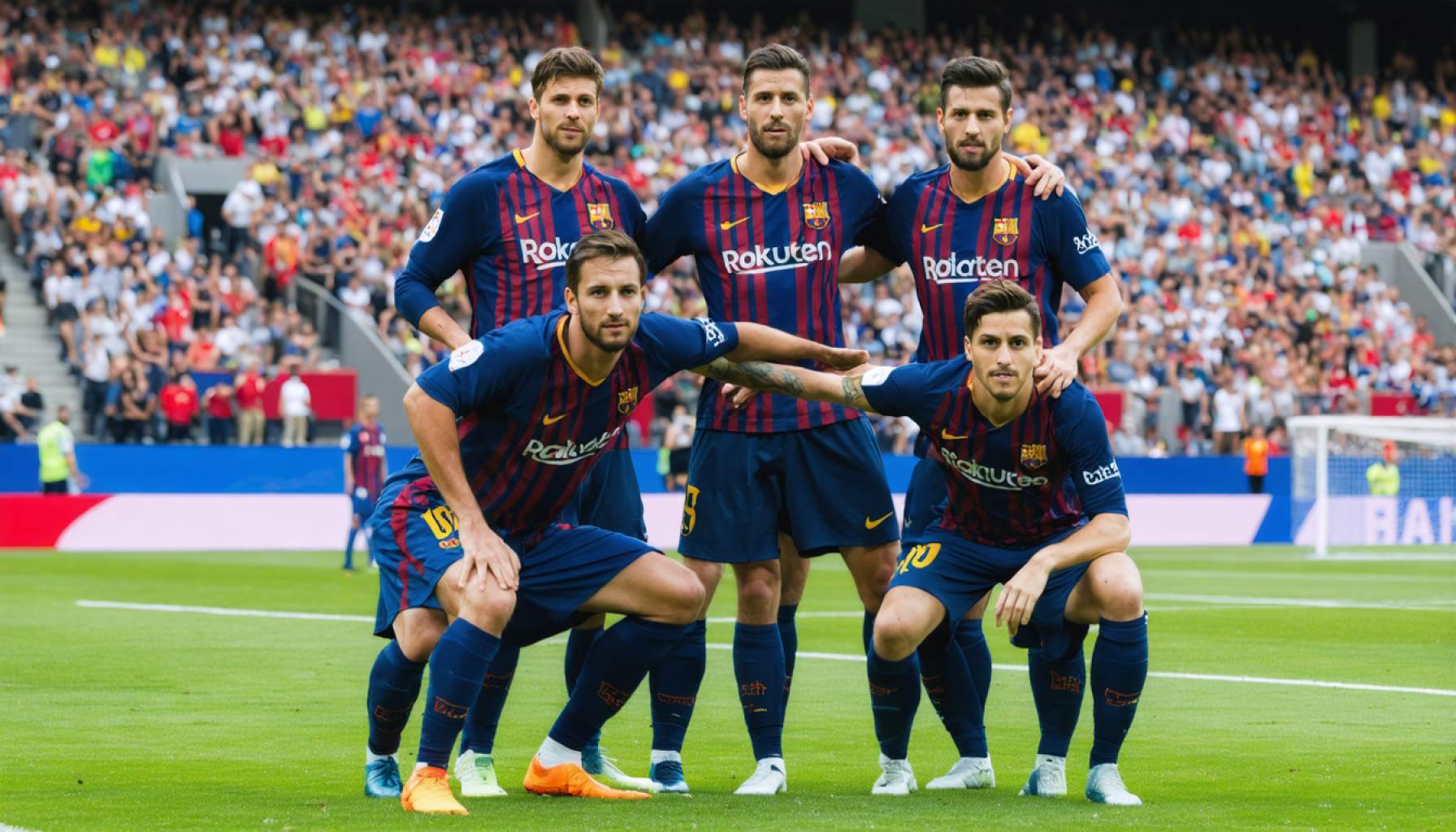- Barcelona exhibits a quiet confidence in its current roster, especially in their full-back positions.
- Sporting director Deco and his team are selective with transfers, only considering transformative opportunities.
- Jules Koundé has excelled in a new role as a right-back, demonstrating adaptability and becoming indispensable.
- Young deputy Héctor Fort seeks more playtime, highlighting emerging talent within the team.
- Alejandro Balde has overcome injuries to become a dynamic force on the left flank, balancing offense and defense.
- Gerard Martín provides reliable support with significant playtime, ensuring depth in the squad.
- Barcelona’s strategy emphasizes nurturing existing talent over pursuing external signings.
A sense of quiet confidence pervades the corridors of Barcelona’s sporting establishment, where the mantra of steadfast trust in their current roster echoes with increasing conviction. Under the watchful eye of Deco, the club’s sporting director, the Catalan giants have dismissed the need for additional defensive signings, particularly for the full-back positions. With a hawk-eyed gaze, Deco and his team scrutinize the transfer market, poised not to pounce unless a truly transformative opportunity presents itself.
Jules Koundé and Alejandro Balde epitomize the club’s unwavering faith. Koundé, originally a central defender, thrives on the right flank, seamlessly shifting into this newfound role with remarkable ease. His assertive play has made him indispensable, as witnessed by his expansive playtime and contribution of goals and assists that illuminate his adaptability. However, this comes at a price—his emerging deputy, Héctor Fort, just 18, desires more than brief cameos despite clear potential.
Across the field, Balde patrols the left side with renewed vigor, dispelling any past doubts cast by injury. The fluidity and fervor with which he advances have reinvented him as a lethal attacking force while refining his defensive tenacity. His back-up, Gerard Martín, brings fresh energy when required, easing seamlessly into the role with over 800 minutes this season.
The takeaway: Barcelona’s strategic patience reflects a belief in nurturing current talent over hastily seeking outside solutions. This philosophy not only highlights Koundé and Balde’s profound impact but sends a clear message—Barcelona chooses refinement over replacement, ensuring their legacy endures with the promise of emerging stars.
Barcelona’s Bold Strategy: Banking on Homegrown Talent Over New Signings
How-To Steps & Life Hacks
Nurturing Talent Within a Sports Team:
1. Identify Potential: Regularly assess your team to identify emerging talent. This involves scrutinizing both performance and potential growth areas.
2. Provide Opportunities: Give young players substantial playtime in smaller matches to build experience and confidence.
3. Mentorship: Pair newcomers with seasoned players for guidance and skill development.
4. Skill-Specific Training: Offer tailored training programs focusing on individual players’ positions and roles.
5. Encourage Versatility: Train players in multiple roles to improve adaptability, akin to Koundé’s switch to full-back from a central defensive position.
Real-World Use Cases
– Jules Koundé: Initially a central defender, now excelling as a right-back, demonstrating the impact of flexibility in player roles.
– Alejandro Balde: Overcoming injury to become a dual-threat on the field shows the value of resilience and strategic recovery plans.
Market Forecasts & Industry Trends
– Trend Toward Homegrown Talent: As exemplified by Barcelona, there is an increasing trend in sports to focus on developing internal talent rather than investing heavily in new signings. This not only fosters team loyalty but can also be more cost-effective.
– Financial Sustainability: Teams like Barcelona avoiding unnecessary transfers may become a norm as clubs face financial constraints post-pandemic.
Reviews & Comparisons
– Barcelona vs. Manchester City: Whereas City often focuses on high-profile signings, Barcelona’s approach emphasizes fostering homegrown talent, highlighting different strategic philosophies in attaining success.
Controversies & Limitations
– Risk of Underdevelopment: Relying heavily on current squad can sometimes lead to stagnation if emerging players are not developed effectively, potentially missing dynamic external talents.
– Injury Prone Practice: Heavy reliance on a few players can backfire if injuries occur, highlighting the importance of depth.
Features, Specs & Pricing
– Economical Approach: By reducing reliance on transfers, Barcelona cuts down on exorbitant fees associated with acquiring new players from external markets.
Security & Sustainability
– Sustainable Growth: Investing in internal talent ensures sustainable sporting success and financial stability over time.
Insights & Predictions
– Long-Term Success: By investing in young talent, Barcelona is poised for sustained success, potentially serving as a model for other clubs.
Pros & Cons Overview
Pros:
– Economically viable.
– Encourages team cohesiveness and loyalty.
Cons:
– High risk if current talents don’t meet expectations.
– Limited flexibility in tactical adjustments without new signings.
Conclusion and Quick Tips
Barcelona’s strategy showcases the power of patience and internal development. For sports teams looking to emulate this model:
– Develop a strong scouting network focused on youth leagues.
– Build a comprehensive player development program emphasizing versatility and personal growth.
– Invest in sports science and medical recovery to keep talents healthy.
These steps can lead to a sustainable pathway to success.
For more on strategies and insights in the sporting world, visit FC Barcelona.
